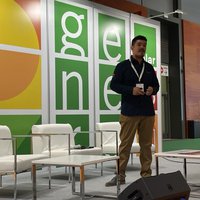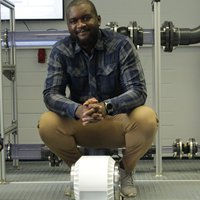Energy & sustainability
Ying WANG
She discovered the “negative” nano-catalysts that can slow down chemical reactions.

Global
Richard Wang
Developed lithium-metal batteries, which have extremely high energy density.

Latin America
Cristóbal Parrado
Using artificial intelligence to improve the productivity of solar plants and accelerate the green transition.

Latin America
Daniel Salinas
Monitoring plants with nanotechnology by connecting them to computers and facilitating decarbonization.

Europe
Mulundu Sichone
Founder & CEO of the award-winning cleantech startup PYDRO
